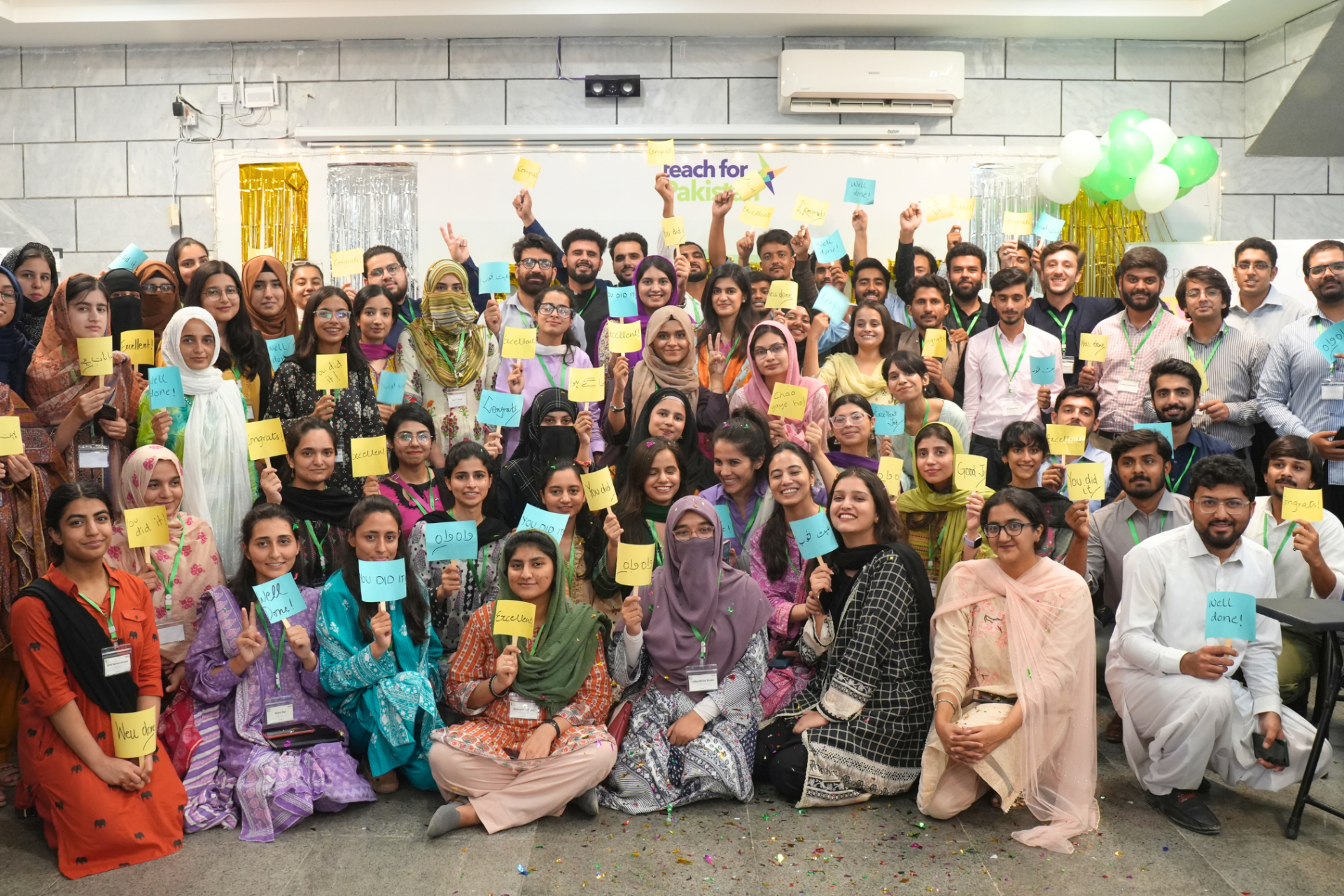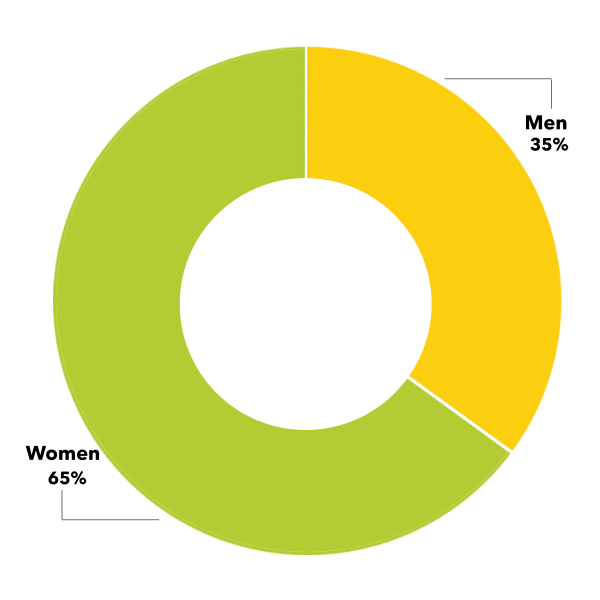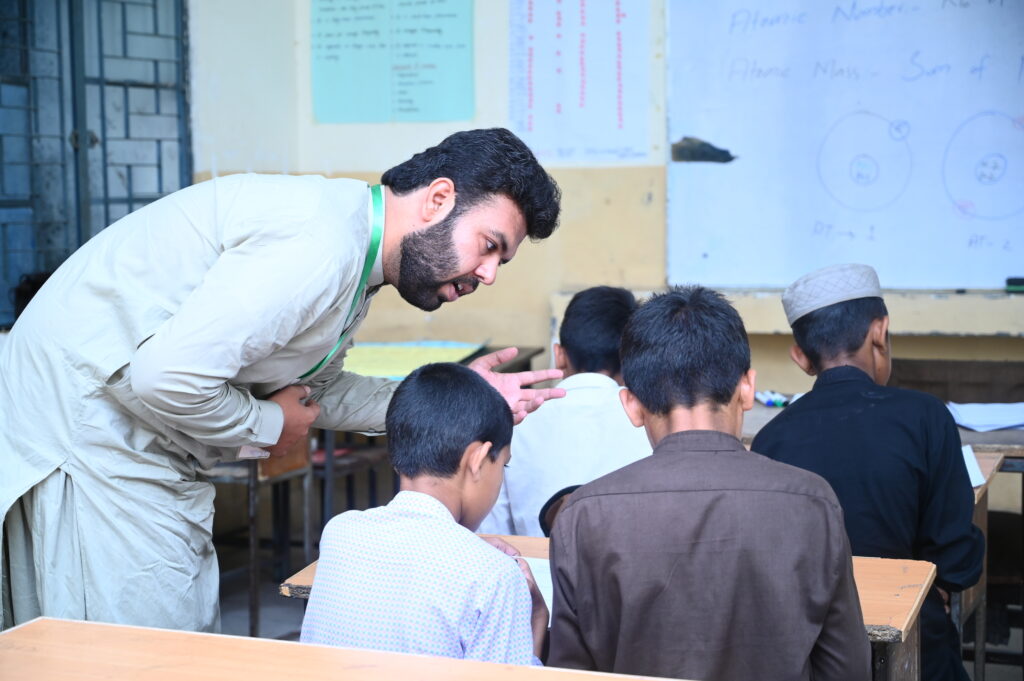The 2023 Fellowship Cohort


3.66


Nirmal Khalil
What can make History and Geography so interesting that they become favorite subjects for 6th graders? Nirmal zeroed in on the visual props like charts, graphs, maps, and other colorful resources to achieve it. The class atmosphere makes a world of difference in student participation and focus. It is one thing to know the names of continents and countries, but a completely different and lasting experience to be able to see them on the map and trace the equator with their index fingers.
For some of her students in the English class, it is their first formal introduction to the language. Her individual attention is already bearing fruit as they are able to structure logical sentences. Nirmal actively keeps in touch with parents to ensure her students’ learning outcomes remain aligned.
Abdul Malik, Syed Junaid Ur Rehman, Waleed Abdullah
These three Fellows teach Math, Science, and English, respectively, to 6th and 7th graders. Early assessments highlighted the need for individualized attention to students in keeping with their varying learning needs. To build individual connections with 350+ students, weekly check-ins are held to monitor classroom performance, academic growth, and social-emotional well-being.
Whole child development requires parental and community inputs; the check-ins helped with these early breakthroughs and brought in a wealth of information, for instance, if the students required private tuition in the past and the subjects they find challenging. By tailoring their lesson plans to the specific needs of the students, they are helping students to foster a vision for themselves and set goals that resonate with their requirements rather than follow some predetermined path without their input.
This approach created a safe space for students to express themselves, encouraging them to share thoughts they might be hesitant to express in the classroom. The second-term exams show that the check-ins helped approximately 30% of students’ progress in areas they previously struggled with. This innovative and inclusive approach not only helps students with their current learning needs but also allows them to set their future targets based on a deeper understanding of their strengths and areas for growth.


Ashraf Ali
Ashraf is teaching mathematics to 4th and 6th-grade students at IMCG Khanna Nayi Abadi, Nilore. He uses a highly structured approach to teaching math, making the subject real and enjoyable for his students by relating lessons to their daily lives. It is impressive to see his 4th graders confidently doing sums using mental math techniques.
In view of literacy gaps, Ashraf is already building a community of support to set up a small library in the school in his second year of Fellowship. He envisions a space that cultivates a love for reading. Securing a dedicated space for the library in a resource-constrained school called for great consensus-building skills; Ashraf is putting his considerable soft skills to rally the school faculty and the community around the library project. His eyes sparkle when he moves his hand through the air, describing the future inscription on the library; “Read, Think and Grow.”
Ashraf feels strongly about broader issues in education, i.e., corporal punishment, malnutrition, and awareness of personal space among the students.
Saleha Rashid
Saleha is breaking new ground in science education in her school. Collaborating with co-Fellows, she organized an innovative Vision and Goals reinforcement session in the school, weaving in the importance of women in leadership within the scientific community.
During class observations, Saleha’s meticulous use of timed activities and countdowns not only captivates her 7th-grade students’ attention but also infuses an element of scientific precision, transforming learning into an engaging exploration.
She presents complex scientific concepts as thought-provoking puzzles, fostering easy mastery among her students. She ensures that science is not just studied but experienced. Her continuous encouragement has cultivated a remarkable 100% participation rate, instilling an “I can discover this” attitude among her students that extends beyond the textbook.
The curiosity and passion for science that Saleha has sparked in her classroom is really palpable.
